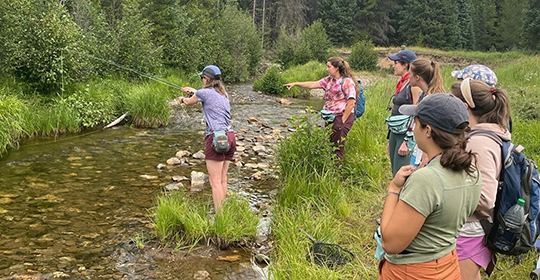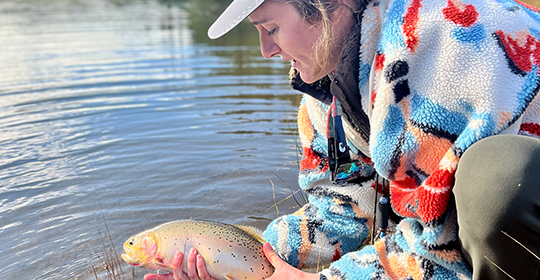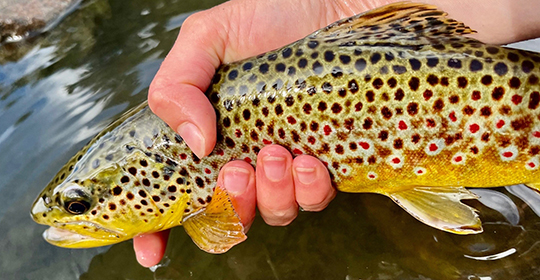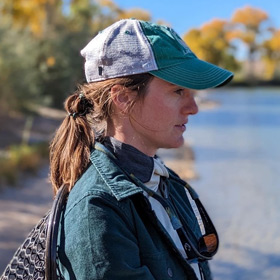Starting a Lifelong Passion: Intro to Fly Fishing
By Melissa Ceren LPCC, M.Ed., Ed.S.
Mar 23, 2023
Fly fishing is a new skill to broaden your enjoyment of nature. These tips are aimed to help you start freshwater fly fishing, from the perspective of a female angler and guide.
At first, I was skeptical about fly fishing because I saw it as a male oriented sport. I didn’t yet understand how my passion for the outdoors, skills in understanding wildlife behavior, and interest in animal life could all perfectly combine into a singular passion—passion for fly fishing. About two years ago, we moved to Colorado and went on a guided fly fishing trip. Although I learned a fair amount on that trip I was not hooked until we hiked to an alpine lake, and I caught my first fish on the fly independently—a ruby red cutthroat trout.
After that experience I was on the water every chance I could get. I learned as much as I could from free resources and from friendly anglers on the water. After two years of consistent fly fishing I became a guide for a local shop, the same shop which sold me my beginner rod kit. Now, not a day goes by that I don’t think about fishing, a passion which will surely grow for years to come.
How You Can Start Fly Fishing
Step One: Learning from someone with experience

One way to gain on-the-water experience is with a fly fishing professional. Guides can be hired through any local fly shop. On trips, not only do you have an opportunity to catch fish, you also learn the fundamentals of fly fishing.
Another avenue to start is through intro fly fishing clinics sponsored by local and national organizations (like Take Me Fishing) as well as fly shops that put on events. You can find these organizations online through social media and internet searches.
Lastly, it is always helpful (and usually free) to learn from a friend or mentor. If you do not know anyone personally that fly fishes, don’t worry—there are tons of valuable educational videos online made by major fly fishing brands and other famous video creators.
Step Two: Obtaining fly fishing gear

The gear does not make the angler! You don’t have to start with the best gear, even beginner gear will catch impressive fish. If and when your investment in fly fishing increases, you will gradually improve your gear.
When you’re starting out look for starter kits in fly shops which include a rod, reel, backing, and line already set up. That way, you’ll just need a net, waders, tippet and flies. Some of these items can also be rented for the day. Employees at fly shops are usually eager to help set you up for success with recommendations for flies and leader/tippet based on conditions, time of year, and pressure on fish in the area.
Step Three: Expanding your knowledge

To improve your skills and technique it is important to continue to spend time on the water, read fishing reports online, educate yourself through learning tips from professionals, and have conversations with fellow anglers. Don’t underestimate the value of taking the time to connect with people in your local shop.
Fly fishing is an invaluable skill and worthwhile pastime that will connect you not only with nature but also with a community of like-minded individuals.









